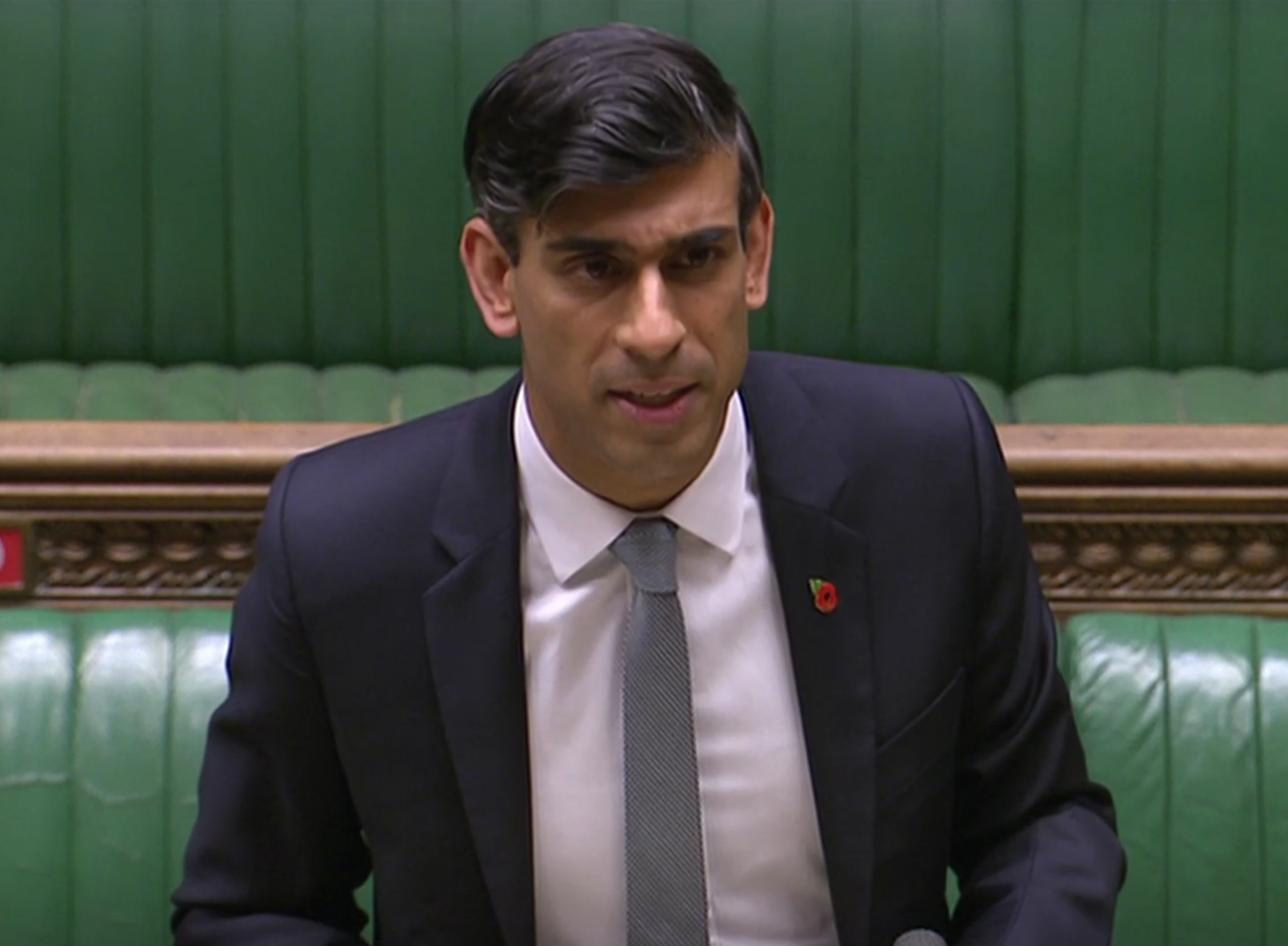Rishi Sunak is getting quite good at explaining U-turns, having made so many
Having just announced an extension of the furlough scheme to 2 December, the chancellor is now pushing it to the end of March, writes John Rentoul


When the chancellor said “the economic risks are skewed to the downside” we knew things were bad. This is elegant Bank-of-England-speak for: “It’s all gone horribly wrong.” Rishi Sunak had come to the House of Commons to explain that he was making yet another U-turn because the coronavirus pandemic had taken a turn for the worse.
He was good at it – as well he should be, as this must be the seventh or eighth statement he has made announcing a dramatic change of policy since he became chancellor in February. The furlough scheme, which had only just been extended to the end of the lockdown in England on 2 December, has now been extended until March, at the rate of 80 per cent, and at a cost not yet even begun to be calculated.
He went back in time to those innocent days in the summer when it had seemed possible to open up the economy and keep the virus at a manageably low level. “We knew there would likely be a resurgence in the spread of the virus, but with increased NHS capacity and Test and Trace, our belief was we would be able to stay ahead of the virus,” he said. It was almost as if he were shaking his head at the naivety of it all, but he pointedly reminded the opposition that he was supported by the TUC and the CBI at the time.
He did not need to add that the Labour Party also supported his policy – and that it changed its tune only on 12 October, when the minutes of the 21 September meeting of the Scientific Advisory Group for Emergencies were published. That was when it emerged that the scientists had urged a temporary lockdown, but that the government had decided against it – with Sunak leading the group of ministers arguing that the cost in jobs lost would be too great.
The chancellor skated over that part of the story in his account of how he and the prime minister arrived at the position last week when the scientific and medical advisers presented data which showed that “the NHS was at risk of being overwhelmed in a matter of weeks”.
Sunak tried to answer Labour’s attacks before Anneliese Dodds, the shadow chancellor, could rise to make them. “Political opponents … will now, no doubt, criticise the government on the basis we have had to change our approach,” he said. “But to anyone in the real world, that’s just the thing that you have to do when circumstances change.”
The chancellor sounded as if he were being clear and open about a difficult decision, which is to his credit, but he was forced to throw himself on the mercy of the electorate: “I’ll leave it to the people of this country to decide whether they believe the government is trying its best to support people through an unprecedented crisis.”
Dodds knew that she was in a strong position when she did reply, because Keir Starmer had called for a temporary lockdown 18 days before Boris Johnson announced it. She said the chancellor keeps ignoring the warnings “until the last possible moment”, but neither she nor Starmer can make the charge of acting too slowly really bite.
The government was given priceless support by Chris Whitty, the chief medical officer, at the news conference on Saturday, when he said it was a “misapprehension” that there was a perfect moment to lock down – words gratefully quoted by the chancellor as he defended himself from Dodds’s less than wounding assault.
Sunak has a way with words. It’s not an economic calamity, it is just a matter of the risks being skewed to the downside. When Peter Bone, the Conservative MP asked the bluntest of questions – “how is the country going to pay for it?” – Sunak’s answer was a remarkable recitation of fiscal responsibility in one long sentence. I quote it in full: “In the short term we are paying for this through extensive borrowing, and he will see that this year our debt to GDP will rise to roughly 100 per cent; we are also carrying a significant ongoing borrowing requirement; that is not a sustainable situation, so as we continue to recover and grow we will have to make sure that we reduce our structural deficit over time, in line with the recommendations from the IMF, to stabilise that; in the first instance that will come through growth, but also we need to make sure that our public finances are balanced appropriately ensuring that we can pass a strong economy on to the next generation.” (In other words, borrow now, tax later.)
And the chancellor’s defence of his latest U-turn was almost disarming in its simplicity: “It is not a weakness to be agile and fast-moving in a crisis, it is a strength.” When Sunak uses a word, it means whatever he wants it to mean.






Join our commenting forum
Join thought-provoking conversations, follow other Independent readers and see their replies
0Comments